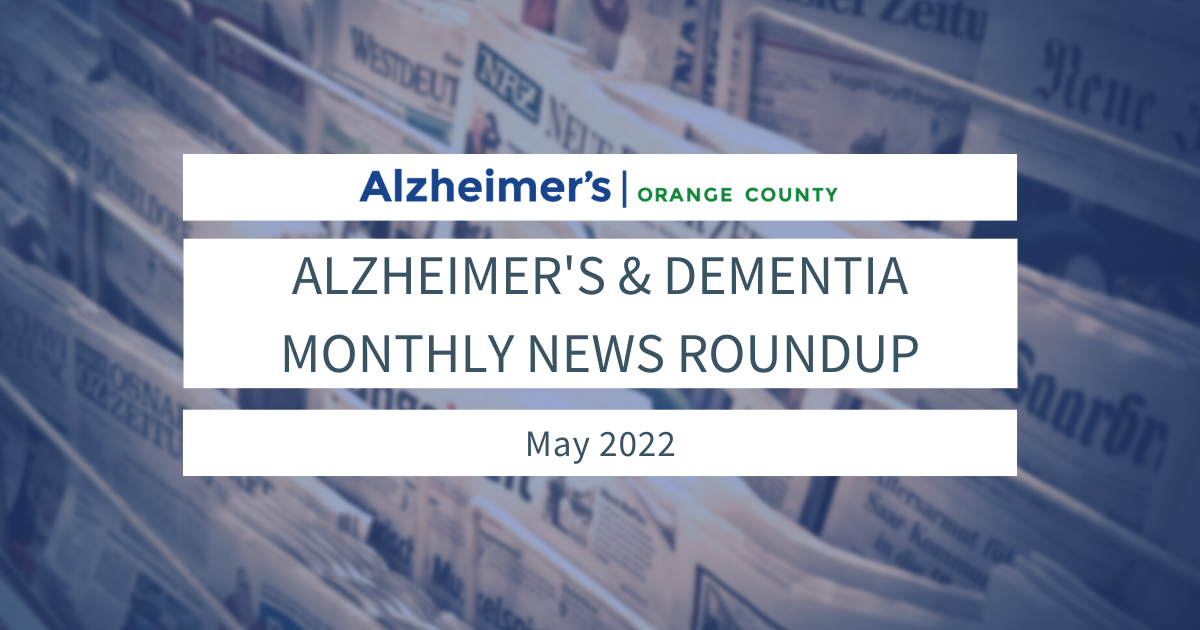A monthly recap of the latest news about Alzheimer’s and dementia
Seven habits reduce dementia risk even with Alzheimer’s risk genes
Researchers in the US have found that people who adopt these seven health habits are less likely to develop dementia, regardless of their underlying genetic risk. Read more here.
Study of promising Alzheimer’s marker in blood prompts warning about brain-boosting supplements
Elevated levels of an enzyme called PHGDH in the blood of older adults could be an early warning sign of Alzheimer’s disease, and a study led by the University of California San Diego provides new evidence to support this claim. Read more here.
Hallmarks of Alzheimer’s found well before diagnosis
Accumulation of amyloid-β and tau proteins are related to brain network changes years before symptoms. Read more here.
Some arthritis drugs may reduce Alzheimer’s and related dementias risk in those with heart disease
New findings from the ongoing Drug Repurposing for Effective Alzheimer’s Medicines (DREAM) study suggest that certain rheumatoid arthritis drugs may lower incidences of Alzheimer’s disease and related dementias in people with cardiovascular disease. Read more here.
FDA designates fast-track for potential Alzheimer’s vaccine, UB-311
UB-311 is an immunotherapeutic vaccine candidate. It targets one of Alzheimer’s main biomarkers: toxic forms of aggregated amyloid protein in the brain. Read more here.
Loss of smell linked to Alzheimer’s cognitive impairment and biomarkers
Decline in sense of smell is connected to a faster buildup of Alzheimer’s disease-related pathology seen in brain scans, according to new research focused on older adults who live outside of nursing homes. Read more here.
This device may nudge your brain into deep sleep
Deep sleep can help the brain flush away harmful waste. This new device could help with that. Read more here.
Your walking speed could indicate dementia
A slower walk as you age has always been a warning sign of increasing frailty that could lead to falls and other disabilities, experts say. Emerging research in small groups of elderly subjects has also found that a slower gait from year to year may be an early sign of cognitive decline. Read more here.


